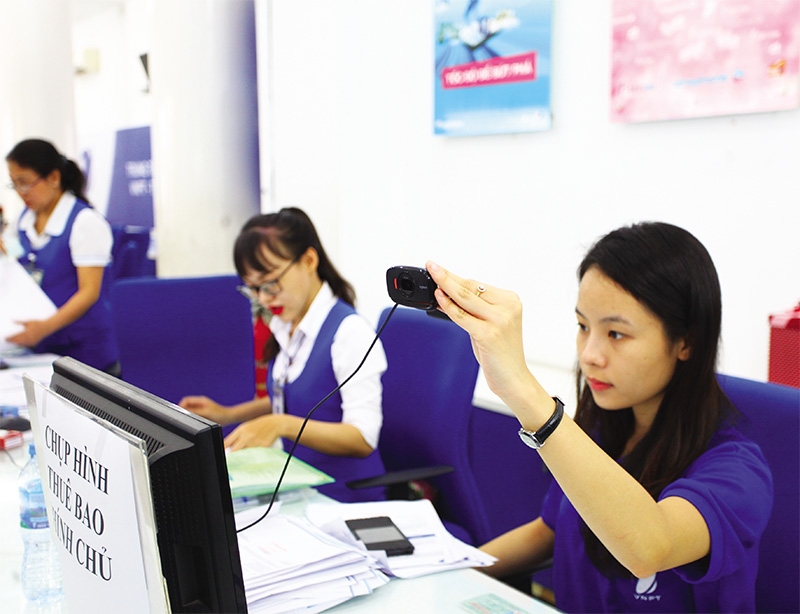Powering up process of equitisation
 |
| Disciplinary measures will be handed out to those enterprises that fail to complete the equitisation plan requested by the government (Photo: Le Toan) |
State-owned enterprises (SOEs) play a large part in Vietnam’s economy. To restructure the economy to be more competitive and increase efficiency, the Vietnamese government has been equitising certain enterprises, and further divesting state capital in equitised SOEs since 2004, involving over 10,000 such groups.
 |
| Law firm ACSV Legal’s associates Phuong Huynh and Duc Tran |
Equitisation of SOEs and divestment of state capital are core policies of the Vietnamese government in order to create a level playing field for business entities, generate funds for infrastructure projects, and comply with Vietnam’s international commitments and free trade agreements. As such, the government is expected to make more efforts to speed up the process.
These moves are interesting opportunities for international investors and can bring about substantial commercial benefits, as large SOEs usually have a high market share, a large workforce, and own key infrastructure and valuable brands.
For equitisation, these investors may partake either as normal backers during a public auction or as strategic ones. Strategic financial investors may be able to negotiate special rights.
For divestment of state capital in equitised SOEs which have not been listed or registered for transactions on the unlisted public company market (Upcom), overseas investors may partake through a public auction or direct negotiation as the case may be. For SOEs which have been listed or registered for transactions on the Upcom, the divestment of state capital shall be carried out in accordance with laws on securities.
Overall, progress has been slow and is behind the original schedule. Since 2016, out of more than 4,400 SOEs planned for equitisation before 2020, only 162 have done so.
According to a report by the National Steering Committee for Enterprise Reform and Development, only 35 out of 127 SOEs have been equitised in this year. This accounts for 27.5 per cent of the government’s 2017-2020 plan as laid down in Decision No.58/2016/QD-TTg and Official Letter No.991/TTg-DMDN approving the list of enterprises to undergo the procedure each year for the period. Decision 59 was issued in December 2016 on criteria for SOE classification and list of SOEs undergoing restructuring in the 2016-2020 period.
Divestment of state capital from enterprises is also behind the schedule laid down in 2017’s Decision No.1232/QD-TTg approving a list of 406 companies of which state capital needed to be divested, but only 88 enterprises or 21.8 per cent of the planned number have carried it out.
Obstacles causing delay
The main obstacles slowing down SOE equitisation and state capital divestment are the valuation of such enterprises and their stricter audit regulations.
As part of the process, an SOE must be valued before approval of the plan. However, the valuation of many is slow due to many reasons – mainly the land use scheme approval process and debt and finance restructuring.
An SOE must review and declare all land plots they and their subsidiaries currently use or manage, and prepare plans to use them in the future for local authority approval. Many local people’s committees have delayed approval of land use schemes, particularly those presented by SOEs. Some have land plots spread across many provinces, which complicates the issue. Moreover, several SOEs must restructure their debts and finances due to cumulative losses.
The regulations on valuation of their intangible assets such as intellectual property, brand value, and historical tradition are also not detailed enough, which creates concern for valuation advisers.
The valuation result in which the state invests VND1.8 trillion ($77 million) and above must be audited by the State Audit Office of Vietnam before publishing, which prolongs the entire process.
If the office finds that there are mistakes in valuation, the enterprise will need to spend time to remedy them and adjust the result. Some divestments are also suspended pending investigations under the anti-corruption campaign.
Delays in the equitisation and state capital divestment generate state budget loss, hamper the business efficiency of SOEs, and reduce the investors’ incentives. Understanding this, the government is making efforts to address and remove these obstacles.
To facilitate equitisation, the government issued Decree No.126/2017/ND-CP issued in 2017 on the equitisation of SOEs having 100 per cent equity owned by the state.
The most notable change from the previous decree is the reduction of lock-up period for strategic investors down to three years. To complete the legal framework for this, several other legal documents were issued. Circular No.40/2018/TT-BTC from the Ministry of Finance (MoF) in May 2018 guides the initial public offering (IPO) and use of proceeds from equitisation; Circular No.03/2019/TT-NHNN by the State Bank of Vietnam this March allows overseas investors to pay a deposit for equitisation in foreign currencies; and Circular No.21/2019/TT-BTC by the MoF in April guides IPO using the book-building method, which is expected to help move the price expectation from the state closer to actual market demand.
Speed up the process
The delay as described before has prompted the government to adjust the plan by issuing Decision No.26/2019/QD-TTg in August. Under this, the relevant ministers, chairpersons of provincial people’s committees, and board members of SOEs have the obligation to submit a quarterly report on the progress of the equitisation process to the Ministry of Planning and Investment, the MoF, and the National Steering Committee for Enterprise Reform and Development for supervision. In case of delay or failure of completing the equitisation plan as prescribed in the decision, they may face disciplinary measures.
This demonstrates the government’s efforts in increasing accountability of responsible persons and speed up the procedures.
Furthermore, in September the government issued Resolution No.73/NQ-CP setting out an action plan to further speed up the process, evidencing the government’s resolve to promptly complete divestment.
List of SOEs to be equitised
Decision 26 also approves the list of 93 SOEs to be equitised by the end of 2020. This list replaces the previous list of 137 under the previous decision. Also, Decision 26 defines the percentage of shares that the state shall hold, namely:
- A majority stake of more than 65 per cent in Agribank, Vinacomin, Vinafood 1, and Thua Thien Hue Minerals Co., Ltd;
- Around 50-65 per cent stake in 62 SOEs, including major corporations such as MobiFone, VNPT, Vietnam National Chemical Group, and Saigontourist;
- Under 50 per cent in the remaining 27 SOEs, including Vietnam Paper Corporation, Saigon Jewellery Company, and Housing and Urban Development Corporation.
Challenges for investors
While this issue presents exciting and lucrative opportunities for outside investors to enter the Vietnamese market or strengthen their existing presence in the country, there are also barriers that they should be aware of.
There are many laws governing SOE equitisation and divestment of state capital, such as those on enterprises, investment, and management and utilisation of state capital. These laws may sometimes overlap and create inconsistency, requiring a related enterprise or investors to obtain specific guidance from relevant authorities on a case-by-case basis.
Decree 126 provides that an SOE must complete the sale of shares within four months of the date of the decision approving the equitisation plan.
This time limit may not be enough for overseas investors to conduct a due diligence exercise, and negotiate representations and warranties, special rights, and other conditions for shares acquisition with the authority representing state capital in the SOE.
Some undertake firms that limit foreign ownership ratio. Overseas investors may need to utilise a multi-layer structure to get around the ownership cap, similar to ThaiBev in the case of acquisition of Sabeco.
Unlike normal merger and acquisition deals with private companies, it may prove to be difficult and time-consuming for foreign investors to negotiate special rights with the state capital representative in a shareholder agreement. It might prove necessary that they, upon entry, review the workforce of the SOE, as their requirements might differ from the management of such an enterprise.
It is recommended that interested international investors work closely with relevant authorities and advisors to address these challenges and come up with a suitable plan in case of either equitisation or acquisition of shares divested by the state.
What the stars mean:
★ Poor ★ ★ Promising ★★★ Good ★★★★ Very good ★★★★★ Exceptional
Related Contents
Latest News
More News
- Citi economists project robust Vietnam economic growth in 2026 (February 14, 2026 | 18:00)
- Sustaining high growth must be balanced in stable manner (February 14, 2026 | 09:00)
- From 5G to 6G: how AI is shaping Vietnam’s path to digital leadership (February 13, 2026 | 10:59)
- Cooperation must align with Vietnam’s long-term ambitions (February 13, 2026 | 09:00)
- Need-to-know aspects ahead of AI law (February 13, 2026 | 08:00)
- Legalities to early operations for Vietnam’s IFC (February 11, 2026 | 12:17)
- Foreign-language trademarks gain traction in Vietnam (February 06, 2026 | 09:26)
- Offshore structuring and the Singapore holding route (February 02, 2026 | 10:39)
- Vietnam enters new development era: Russian scholar (January 25, 2026 | 10:08)
- 14th National Party Congress marks new era, expands Vietnam’s global role: Australian scholar (January 25, 2026 | 09:54)

 Tag:
Tag:



















 Mobile Version
Mobile Version